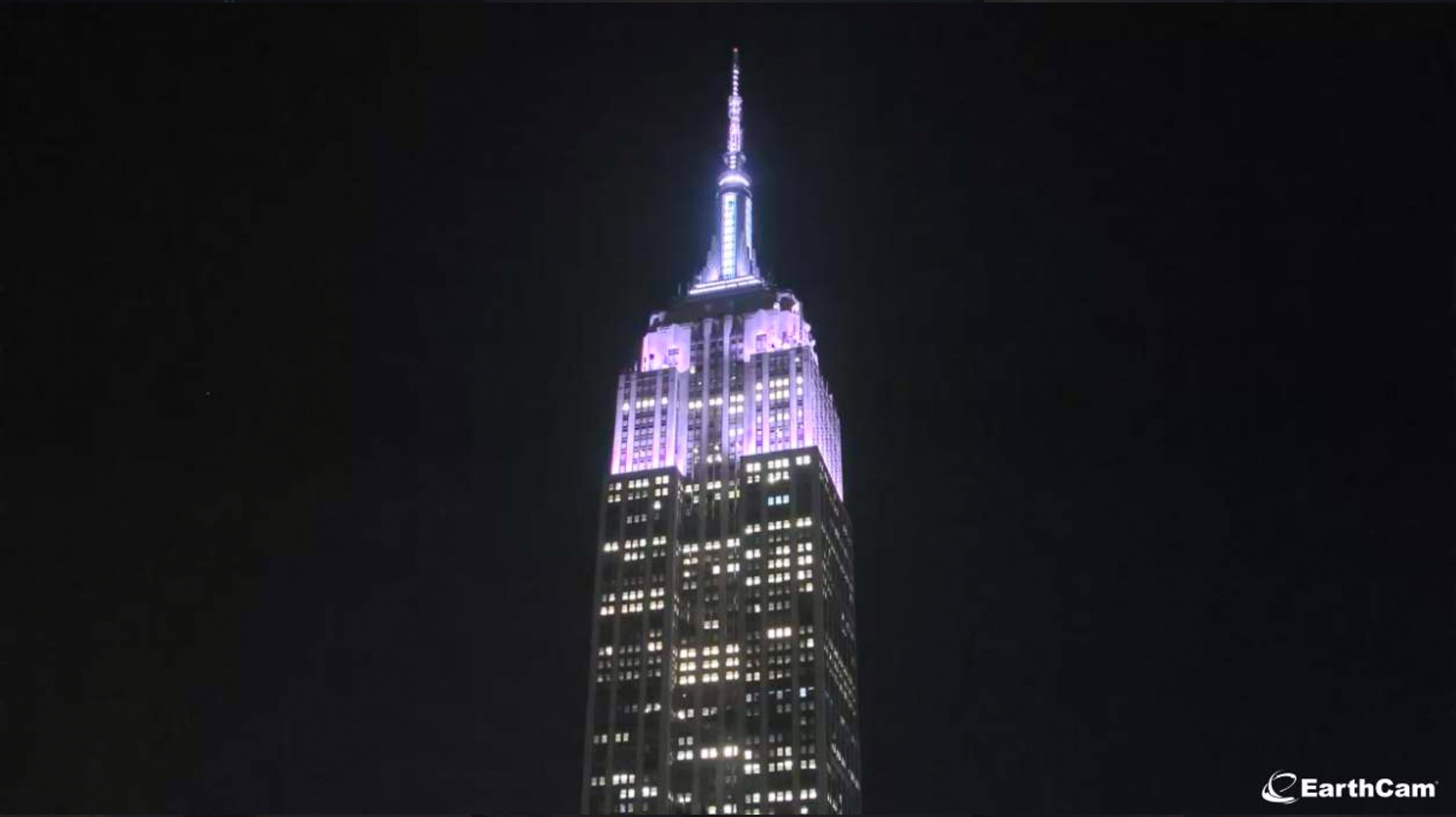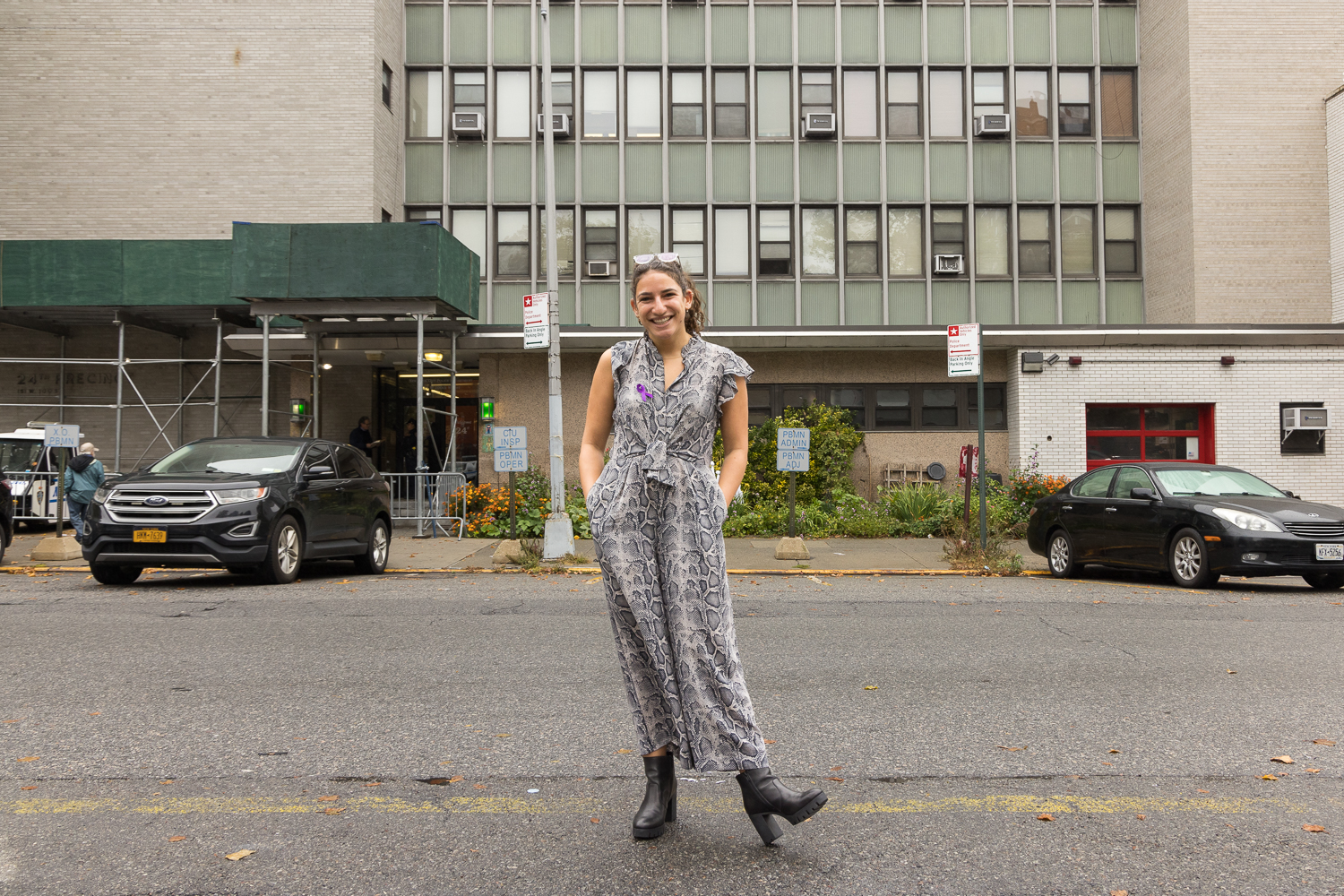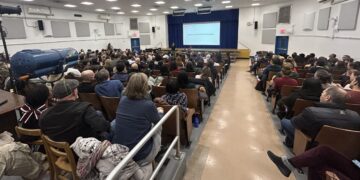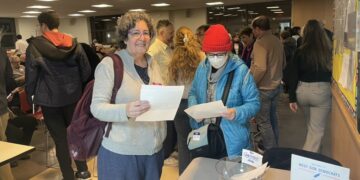
By Daniel Krieger
Thursday, October 20th, was NYC Go Purple Day, during which some city landmarks were illuminated in purple and New Yorkers wore purple in observance of Domestic Violence Awareness Month, launched in October 1987.
One particular supporter of domestic violence survivors who donned purple that day was Molly Blauner, the domestic violence victim advocate at the NYPD’s 24th Precinct on West 100th Street. She spoke to WSR by Zoom on Go Purple Day about her job, which she started in August.
Blauner, 22, is one of dozens of “domestic violence victim advocates” placed in each police precinct across the city by the nonprofit Safe Horizon in partnership with the NYPD, as part of the Crime Victim Assistance Program, or CVAP, explained Kimberlina Kavern, CVAP’s senior director (who was on the call). Launched in 2016, CVAP also stations “crime victim advocates” in each precinct. It was an outgrowth of work Safe Horizon and the NYPD had been doing for 30 years.
“[CVAP] was created with the conscious choice to have the advocates be employees of a nonprofit and not NYPD employees,” she explained. The advocate is a neutral party without a stake in prosecutorial outcomes and has the goal of helping victims navigate the system rather than encouraging them to press charges. In this capacity, they guide them through various steps to help them get what they need.

“Our services range from finding people shelter to helping them with legal services to counseling and therapy,” said Blauner, adding that they also develop what they call “a safety plan” by figuring out their biggest safety concerns.
Blauner, who grew up in Manhattan, said her day begins at 10 AM when she arrives at the desk she shares with the crime victim advocate, her counterpart, in a room with three domestic violence officers and the sergeant of the domestic violence unit.
Her tasks throughout the day include: reaching out to domestic violence survivors she has already been in touch with to see how they are doing; reviewing daily domestic incident reports and calling those survivors; doing home visits with domestic violence officers to follow up and make sure they are OK; talking to walk-ins; making announcements at the precinct’s roll call to remind police officers about what domestic violence victims could be going through, like a recent one she did on strangulation; and doing outreach to raise awareness of the support that is available through the program.
While in college, Blauner worked with survivors of domestic violence and wrote her thesis on them. After graduating, she learned about Safe Horizon’s extensive track record in helping such survivors and wanted to be part of that mission. “It was something that I was passionate about so I wanted to continue with that kind of work,” she said.
The training, conducted by Safe Horizon, includes a six week intensive course, followed by ongoing seminars, like one the following day about anti-racism. “We learn about putting clients first,” she said, “taking a trauma-informed approach, and making sure that the clients are really dictating how we are helping them.”
Though sometimes it’s hard hearing the heartbreaking stories of the survivors who come to her, she has learned a lot on the job about how to guide them through the system, she said, and finds it rewarding to “work with them to make sure that they are in a safe place.”
The month of October has been especially busy with all of the events of Domestic Violence Awareness Month, such as conferences that bring together the various nonprofits that serve domestic violence survivors to coordinate their systems as well as get the word out about what they offer.
“It’s really amazing how much effort is out there to battle this issue,” she said. “I just want to tell survivors who haven’t been able to seek help yet that it’s a process and they are not alone. There are always people in police precincts that they can reach out to.”










Thank you, Molly! You go to work every day and make a difference. That is truly incredible. 💜
Great job, Molly!!!